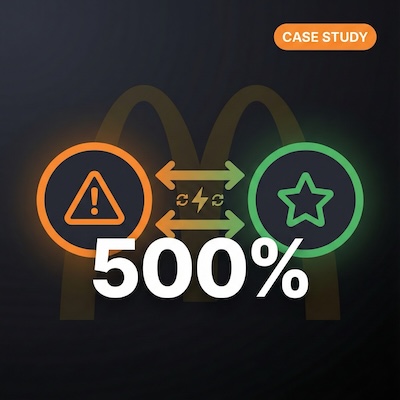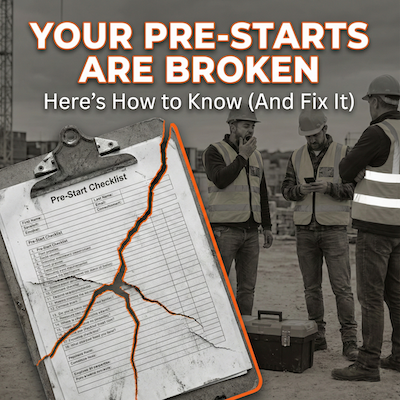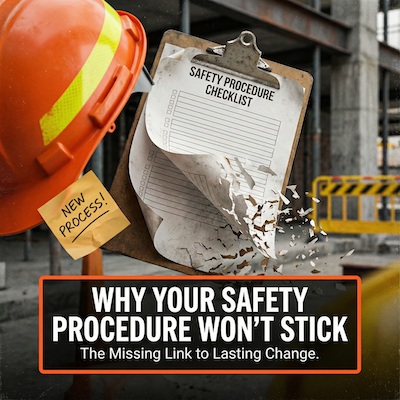Introduction: Embracing Neurodiversity in Construction Safety
In 2015, Jamie Knight, an autistic software engineer at BBC News Labs, faced a daunting challenge: the BBC had just launched a new website, and users were encountering various issues that needed to be resolved quickly. While some might have found the situation overwhelming, Knight's unique ability to hyperfocus and his extraordinary attention to detail enabled him to swiftly identify the problems and develop effective solutions. By leveraging his neurodiverse strengths, Knight not only helped improve the website's functionality but also demonstrated the immense value neurodiverse individuals can bring to the workplace. This gripping story serves as an inspiring example of the power of neurodiversity in construction safety teams and beyond.
The concept of neurodiversity recognises the natural variation in human brain function and behaviour, encompassing conditions such as autism, ADHD, dyslexia, and more. It highlights the idea that these differences should be recognised and valued, rather than viewed as deficits or disorders. In the construction industry, embracing neurodiversity has the potential to foster innovation, boost productivity, and enhance safety.

Shattering Stereotypes: Understanding Neurodiversity
Common misconceptions about neurodiverse individuals often revolve around their perceived inability to contribute effectively in the workplace or their need for constant support. However, this couldn't be further from the truth. Many neurodiverse individuals possess unique strengths and talents that can greatly benefit the construction industry, particularly in the realm of safety.
For instance, Sir Richard Branson, the founder of the Virgin Group, has dyslexia. Despite facing challenges in school, Branson went on to build a successful business empire that spans various industries, including aviation, telecommunications, and space travel. Another example is Elon Musk, the CEO of Tesla and SpaceX, who revealed during a 2021 appearance on Saturday Night Live that he has Asperger's syndrome. Despite his diagnosis, Musk has revolutionised the electric vehicle and space exploration industries.
These successful neurodiverse individuals demonstrate that people with diverse cognitive abilities can excel in their respective fields, breaking down stereotypes and paving the way for a more inclusive and diverse construction industry.
The Power of Neurodiversity in Construction Safety Teams
In the construction sector, safety is paramount. A diverse team that includes neurodiverse individuals can offer unique perspectives, problem-solving abilities, and attention to detail, which can lead to improved safety practices and reduced accidents on the job site.
For example, autistic individuals are often known for their ability to spot patterns, identify inconsistencies, and maintain focus for extended periods. These skills can be invaluable in a construction safety team, where reviewing safety procedures, conducting risk assessments, and ensuring compliance with regulations are critical tasks. Additionally, individuals with ADHD may bring an exceptional level of energy and creativity to the table, helping to devise innovative safety solutions and keep the team engaged.
When neurodiverse individuals are included in construction safety teams, their unique strengths can complement those of their neurotypical colleagues, resulting in a more dynamic and effective team. Furthermore, embracing neurodiversity can lead to an inclusive work environment that encourages open communication and collaboration, fostering a strong safety culture throughout the organisation.

Leveraging Technology: The Role of Construction Safety Apps
In today's digital age, technology plays a crucial role in supporting neurodiverse individuals and enhancing safety practices in the construction industry. Construction safety apps, for example, can offer a range of features designed to assist both neurodiverse and neurotypical team members in managing safety on the job site. Some apps provide visual cues and reminders, which can be particularly beneficial for individuals with dyslexia or ADHD who may struggle with organization and time management. Others offer speech-to-text functionality, enabling users to verbally record their observations and notes without the need for typing, a feature that can be valuable for those with dysgraphia or other writing difficulties. Construction safety apps can also facilitate real-time communication and collaboration between team members, enabling neurodiverse individuals to contribute their insights and expertise more effectively.

Strategies for Senior Safety Managers: Fostering an Inclusive and Diverse Workplace
To harness the power of neurodiversity in construction safety teams, senior safety managers must be proactive in creating an inclusive and diverse work environment. Here are some practical strategies to promote neurodiversity in construction safety teams:
1. Education and awareness:
Raise awareness about neurodiversity and its benefits among management and staff. Provide training to help employees better understand the unique strengths and challenges faced by their neurodiverse colleagues.
2. Inclusive recruitment practices:
Implement inclusive recruitment practices that focus on skills and abilities, rather than relying solely on traditional qualifications. Consider offering alternative application methods, such as skills-based assessments or video interviews, to accommodate a diverse range of candidates.
3. Flexible work arrangements:
Offer flexible work arrangements, such as modified schedules, remote work options, or job-sharing opportunities, to accommodate the diverse needs of neurodiverse employees.
4. Accessible technology:
Invest in accessible technology, such as construction safety apps, to support neurodiverse team members and enhance safety practices on the job site.
5. Mentoring and support:
Establish a mentoring program or buddy system to help neurodiverse employees integrate into the team and provide ongoing support as needed.
By implementing these strategies, senior safety managers can help create a more inclusive and diverse workplace that not only benefits neurodiverse individuals but also enhances the overall safety and productivity of the construction industry.

Conclusion: Building a More Inclusive Future in Construction Safety
The benefits of embracing neurodiversity in construction safety teams are clear. By valuing and harnessing the unique strengths and talents of neurodiverse individuals, the construction industry can foster innovation, improve safety practices, and create a more inclusive work environment. Senior safety managers play a crucial role in driving this change, and by taking the necessary steps to promote neurodiversity, they can help build a brighter, more inclusive future for the construction industry.
FAQ
Q1: What is neurodiversity?
A1: Neurodiversity is a concept that recognises and values the natural variations in human cognition, including differences in learning, attention, sociability, and other mental functions. It encompasses a range of neurological differences, such as autism, ADHD, dyslexia, and dyspraxia, and promotes the idea that these differences should be respected and embraced, rather than pathologised.
Q2: How can neurodiversity benefit construction safety teams?
A2: Neurodiverse individuals can bring unique strengths, perspectives, and problem-solving abilities to construction safety teams. They may excel in areas like pattern recognition, attention to detail, or creative thinking, which can lead to innovative safety solutions, improved risk management, and better overall safety outcomes for construction projects.
Q3: What can senior safety managers do to promote neurodiversity in their teams?
A3: Senior safety managers can promote neurodiversity by raising awareness about the benefits of neurodiversity, implementing inclusive recruitment practices, offering flexible work arrangements, investing in accessible technology, and establishing mentoring and support programs for neurodiverse employees.
Q4: How can construction safety apps support neurodiverse individuals?
A4: Construction safety apps can provide features like visual cues and reminders, speech-to-text functionality, and real-time communication tools to support neurodiverse individuals. These features can help accommodate the unique needs and strengths of neurodiverse team members, allowing them to contribute more effectively to construction safety.
Q5: How does fostering neurodiversity contribute to a more inclusive construction industry?
A5: By embracing neurodiversity and valuing the unique strengths and talents of neurodiverse individuals, the construction industry can create a more inclusive work environment. This not only benefits neurodiverse employees but also contributes to a more diverse and innovative industry, ultimately leading to better safety practices and outcomes.










.svg)
